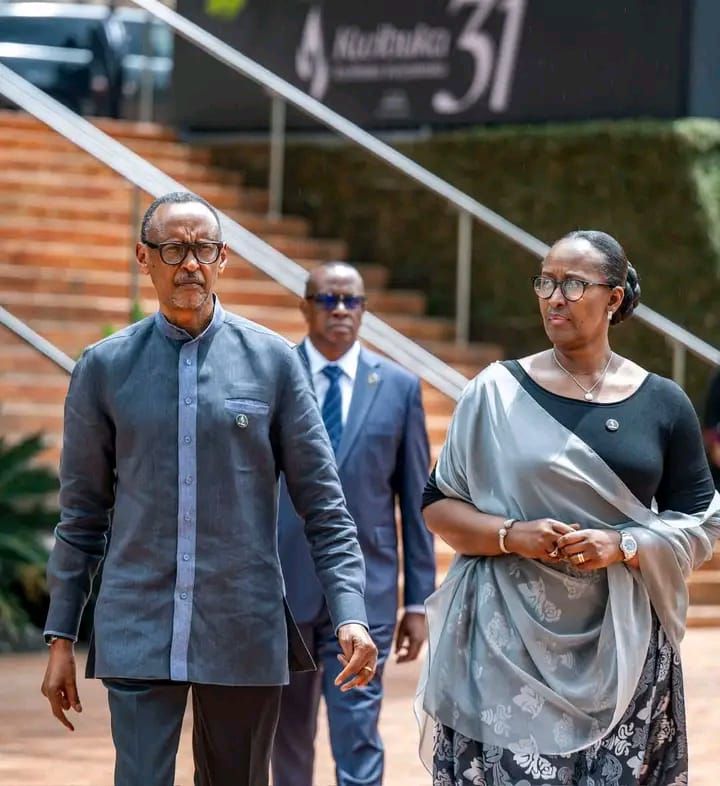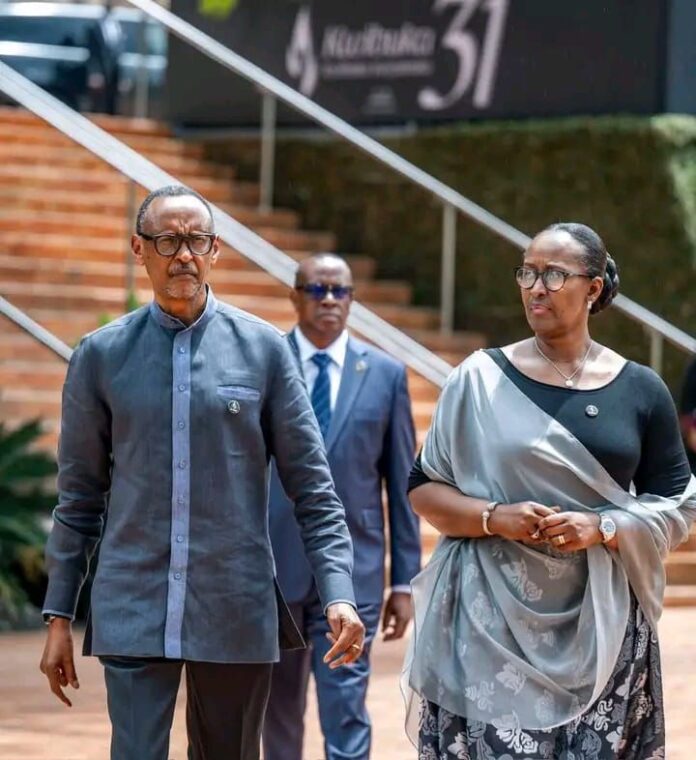By Jones Gadama
President Paul Kagame and First Lady Jeannette Kagame joined Rwandans at the Kigali Genocide Memorial to mark the start of the 31st commemoration of the 1994 genocide against the Tutsi.
The somber ceremony honored the over one million innocent lives lost during the 100-day period of brutal violence.
Laying a wreath and lighting the Flame of Remembrance, President Kagame delivered a powerful message, urging Rwandans to stand strong and assert their rights. “Rwandans, don’t owe your life to anybody else,” he said. “Have the courage to deal with the situation and moment as it is, don’t offend anybody, but always fight for what is yours.

Don’t allow anybody to dictate to you how you should live your life because the moment you accept it, that is the day you have lost your life”.
The commemoration, which will last for 100 days, serves as a poignant reminder of the devastating impact of the genocide on Rwanda and its people.
The Flame of Remembrance, lit by President Kagame, will burn throughout this period, symbolizing the nation’s collective memory and hope for a future free from such atrocities.
Minister of National Unity and Civic Engagement, Jean Damascene Bizimana, emphasized the importance of unity and resilience in the face of adversity.
“The light of this flame symbolizes our collective memory and our continued hope for a world free from genocide,” he said. “It is a reminder that, despite the horrors of our past, we remain united in dignity and purpose”.
The United Nations General Assembly recognized April 7 as the International Day of Reflection on the 1994 Genocide against the Tutsi in 2003, urging member states and organizations to observe the day with meaningful actions and remembrance.
This international recognition underscores the global commitment to preventing similar atrocities from occurring again.
Despite progress made in Rwanda, concerns remain about ongoing violence against the Tutsi in the eastern Democratic Republic of Congo (DRC).
Minister Bizimana expressed alarm over the silence of the international community regarding the plight of Congolese Tutsi refugees, drawing parallels to the events leading up to the 1994 genocide.
The commemoration also highlighted the need for continued efforts to bring perpetrators of the genocide to justice.
According to the National Public Prosecution Authority (NPPA), Rwanda has issued 1,147 indictments since 2007, but only 62 individuals have been brought to justice.
As Rwanda marks this somber anniversary, the nation and its people remain committed to building a brighter future.
President Kagame’s message of empowerment and resilience serves as a testament to the country’s determination to move forward, united and strong.
In the face of ongoing challenges, Rwandans and friends of Rwanda worldwide come together to reflect on the past, honor the victims, and reaffirm their commitment to a future free from genocide.
As Minister Bizimana said, “The genocide against the Tutsi may have ended 31 years ago, but the ideology that drove it still threatens lives. We honor the past by standing firm against it—wherever it arises”.



